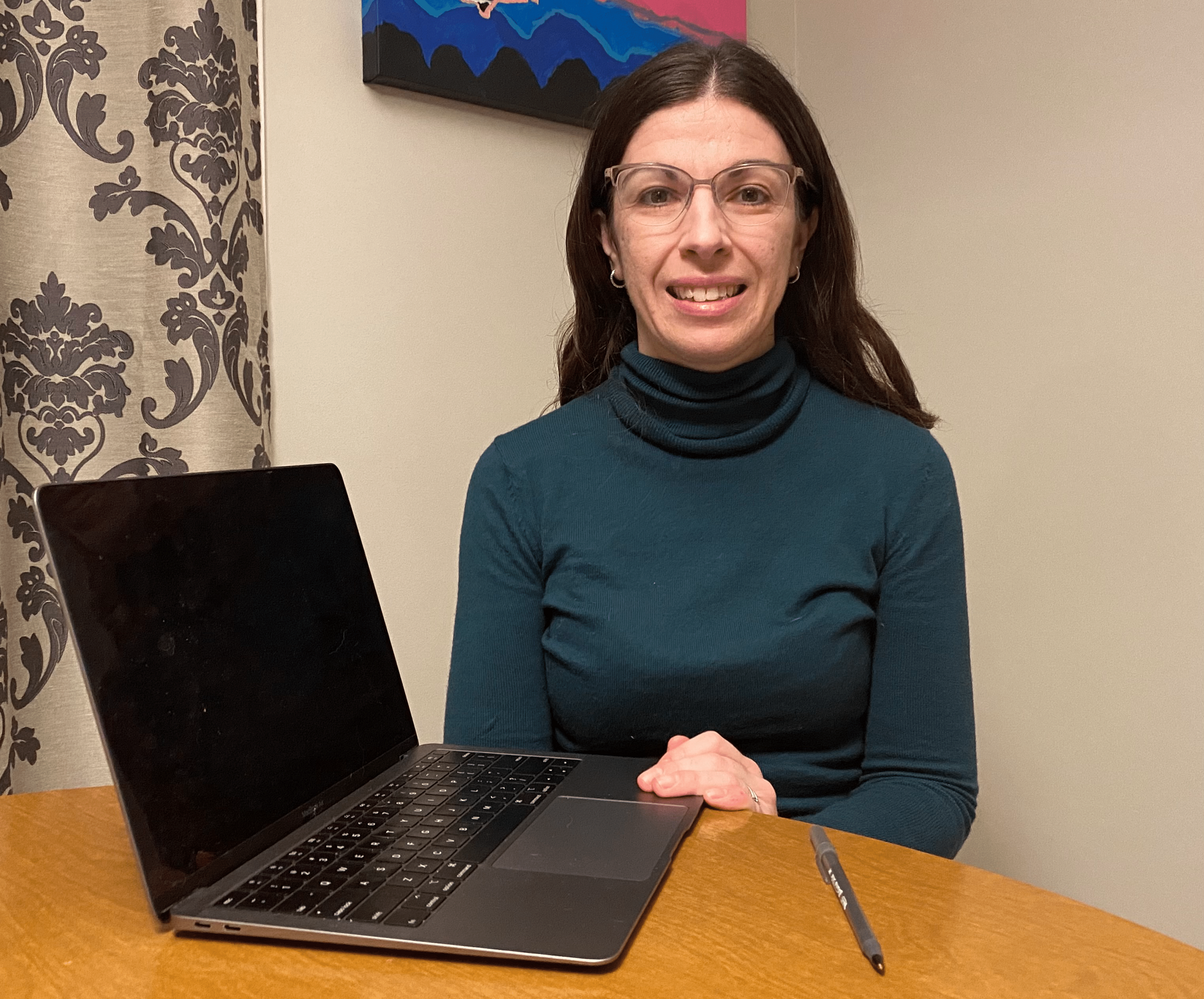From Park Sessions to Virtual Games: VHA’s Paediatric OTs Prove That in a Pandemic Flexibility Perseveres

When the pandemic initially put a stop to paediatric occupational therapy (OT) services, Lindsey Colangelo and her colleagues in Toronto were really concerned about how they would continue to support the children and families they care for.
VHA quickly put the guidelines and processes in place for services to be provided virtually where possible and Lindsey embraced this opportunity. She then needed to try to get in touch with families that she had previously seen in schools. “It’s a pretty awful feeling in your stomach when you know that children with high-needs and their families are isolated and without support,” she said. “I think that for many parents and caregivers, they were just really overwhelmed. They were trying to navigate online learning, child care challenges and their own work demands, and virtual care was new and may have felt intimidating at first, and initially many families just weren’t able to take on anything more,” said Lindsey.
Fortunately with time, increased confidence in virtual care and the temporary reopening of schools in the fall, Lindsey and her rehab colleagues have been, for the most part, able to deliver virtual care services quite successfully. “My team has been wonderfully creative and many are much better with technology than I am. Interactive PowerPoint presentations, ‘would you rather’ scenarios and hilarious games of Mad Libs over the screen have all helped us to reach our therapeutic goals in ways we hadn’t thought of before,” she said.
Though virtual care with children inevitably has its challenges, there have also been clear benefits to this new care model. “For my in-school visits before the pandemic, parents were not present for sessions and would receive an update at the end of each visit. Virtual therapy means that parents can now either attend or check-in during the session and this has provided a unique opportunity to further empower parents to help their children,” she said. “Families have been able to learn and take on these exercises or adaptations with confidence and we’ve seen a lot of progress in the children during this time,” she said.
“Supporting parents and families virtually has also really tested my observation skills, creativity and resourcefulness. I have to think and act quickly. It has certainly been valuable for me as a clinician,” said Lindsey.
Virtual visits have typically worked well for children with fine motor challenges who have difficulty printing on a line or struggle with buttons or shoelaces, but haven’t been successful for all of Lindsey’s clients. “In many cases, virtual visits for children with attention difficulties, sensory issues, autism and other challenges weren’t a good fit—no matter how hard we tried.”
So for these situations, Lindsey and her team had to adjust and adapt. Capitalizing on the warm weather during the summer and fall months, in-person park visits replaced the less successful virtual ones. Obstacle courses, games with giant dice and park yoga were just some of the outdoor therapies tailored to each child that made a big difference. “Finding ways to engage and support kids outdoors has been something totally new, and it has been fun and rewarding to see this work,” said Lindsey.
This flexibility with her clients and families has created some personal challenges for Lindsey and her colleagues. “I have two school-aged children and pre-pandemic when I was seeing clients in schools, I was able to work 9:00-3:00 and be present for my own kids before and after school,” she said.
Now Lindsey is working those hours as well as evenings and weekends to accommodate families that she couldn’t see otherwise. “We’ve also needed to invest a lot of time figuring out new platforms and adapting activities and therapies on top of all the regular reporting. Even though we’re working extra hours, our caseloads have gone down—and so has our pay. I know my colleagues are dealing with the same pressures,” she added. “These just aren’t easy times for anyone.”
With Ontario under stay-at-home orders and schools closed again for in-person learning, Lindsey doesn’t know how this will impact her OT services moving forward. “What I do know is that this is the situation and it isn’t going to change anytime soon, so we have to keep pushing forward,” she said. “I’m so proud of how my team has been able to support children and families in our community, and that is something to celebrate.”
